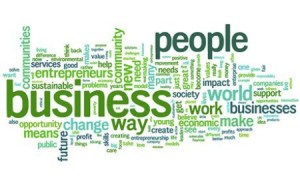 Rachel Meadow claims that online shopping is gradually putting retail stores out of business. In her blog post, Rachel talks about how services like Amazon have become a major threat for companies such as Staples and Best Buy. There are several risk factors which accompany having a physical retail store. In response, Staples has closed down over a dozen locations and focused its attention instead, on creating an online option for customers.
Rachel Meadow claims that online shopping is gradually putting retail stores out of business. In her blog post, Rachel talks about how services like Amazon have become a major threat for companies such as Staples and Best Buy. There are several risk factors which accompany having a physical retail store. In response, Staples has closed down over a dozen locations and focused its attention instead, on creating an online option for customers.
I agree with Rachel in the sense that online shopping has a strong value proposition of ease and satisfaction. Why would you trek out to a store when you can sit down at your computer and find exactly what you’re looking for?
In order for retail stores to maintain their competitive edge they need to offer a memorable and positive experience for their customers. When a company has clearly determined their value proposition and target segment they can customize and create a service/experience which attracts the customer just as much as the product. Is online shopping truly a threat to retail stores or could it be an opportunity for companies to reevaluate and redesign? Up until recently, there haven’t been any competitive substitutions for physical stores. While online shopping represents a threat to retail stores, it also is a sign that many companies need to take a step back and analyze the shopping experience they are providing for customers.


 come about because of the presence of the UN. Responding to immediate needs and global issues, the United Nations does not offer long term sustainable assistance in the same way that Arc and social enterprise does.
come about because of the presence of the UN. Responding to immediate needs and global issues, the United Nations does not offer long term sustainable assistance in the same way that Arc and social enterprise does. 
